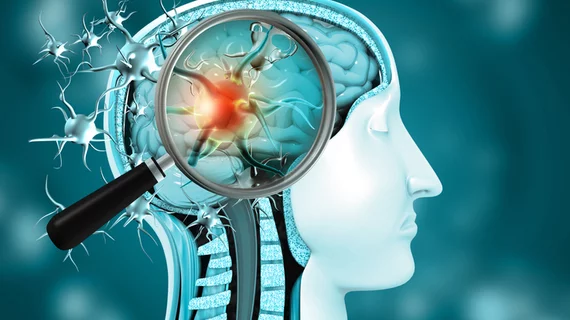For first time, imaging tracer visualizes ‘master switch’ protein responsible for cancer growth
A newly developed radiopharmaceutical has allowed imaging experts to visualize a protein responsible for cancer growth for the first time.
Stanford University researchers detailed their novel 18F-DASA-23 imaging tracer over the weekend during the Society of Nuclear Medicine and Molecular Imaging’s virtual meeting.
Using this tool, the team keyed in on the protein pyruvate kinase M2 (PKM2). It’s known as a “master switch” that controls metabolism and allows cells to continue making the building blocks required for cellular division, a cornerstone in cancer growth.
“Until now we’ve had no way to assess the presence or activity levels of the PKM2 protein involved in that switch,” Corinne Beinat, PhD, instructor of radiology at Stanford University in Stanford, California, said. “Through the development of 18F-DASA-23, this is the first time we can noninvasively interrogate the biochemistry of a tumor with respect to this master switch PKM2.”
For their study, Beinat and co-investigators focused on patients with glioblastoma brain tumors. Healthy individuals and participants with tumors underwent PET/MRI scanning with 18F-DASA-23. The imaging tracer successfully visualized PKM2 in those with glioblastomas, while also rapidly clearing from the bodies of healthy volunteers.
The radiopharmaceutical may be particularly helpful in determining whether treatments are working or not, Beinat et al. noted.
“For example, if a brain tumor is treated with a drug and then imaged with 18F-DASA-23, we can potentially know very quickly whether the therapeutic approach is working,” Beinat explained. “If it’s not effective, we won’t have to waste more time waiting to see if the tumor itself is shrinking.”
Aside from brain tumors, Beinat noted this tracer could be used to learn about other forms of cancer.

